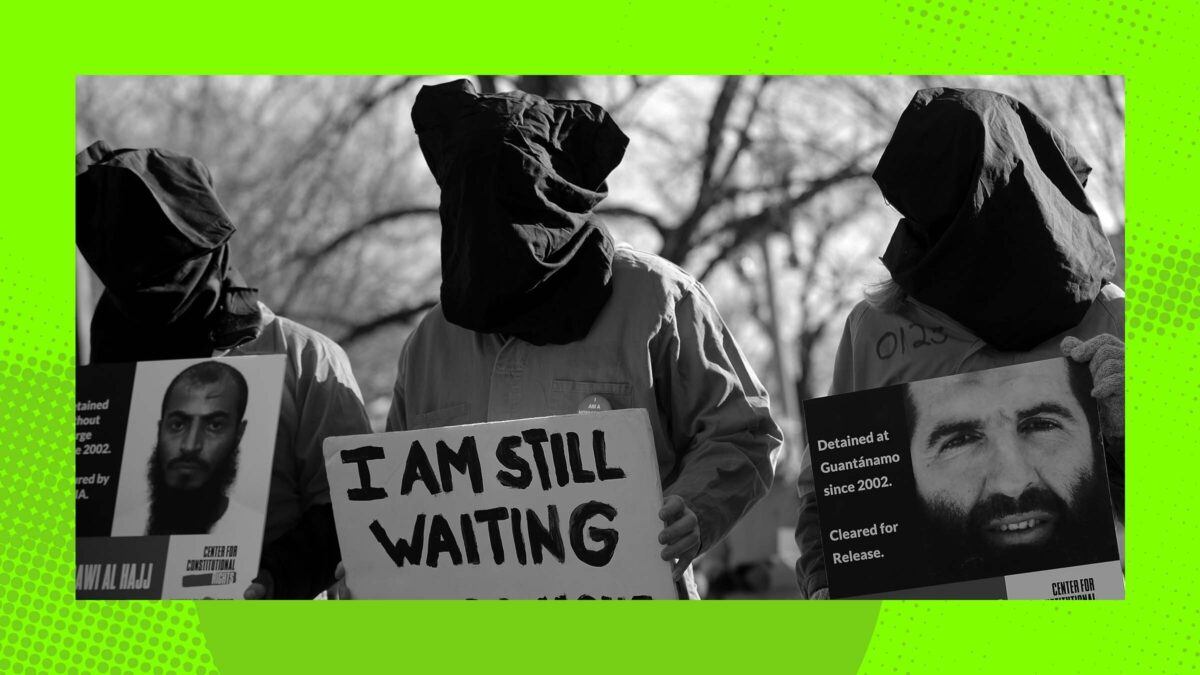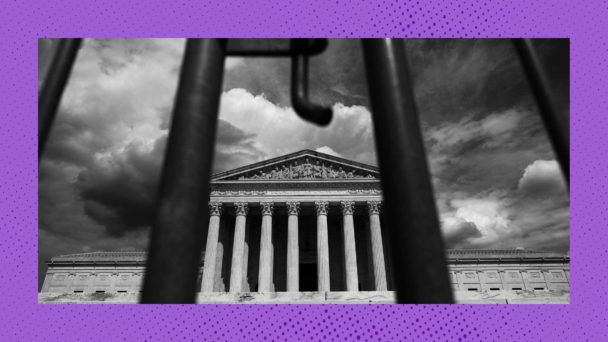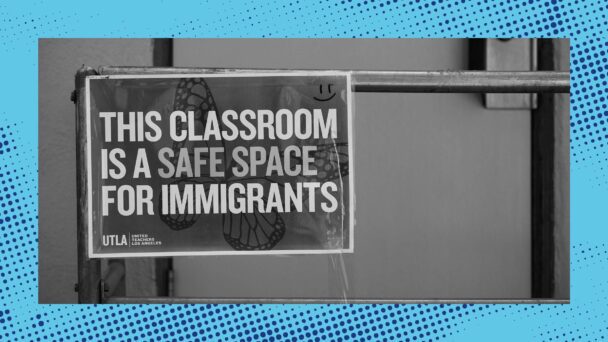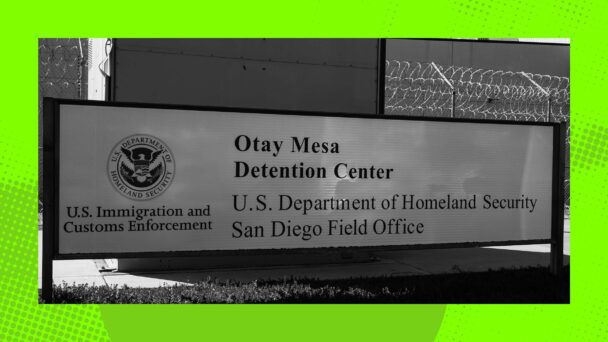On the 2024 campaign trail, President Donald Trump regularly invoked the name of Laken Riley, a Georgia nursing student murdered by an undocumented man with a history of previous arrests, to support the demonization of immigrants writ large. Now, as president, Trump has signed an aggressive piece of anti-immigrant legislation called the Laken Riley Act, which requires the federal government to detain noncitizens accused of certain crimes, and empowers states to sue the feds for what they deem insufficient enforcement of federal immigration laws. The Act—the first bill signed into law during Trump’s second presidential term—passed thanks in large part to the 46 House Democrats who voted in favor of it.
The Act dramatically expands mandatory immigration detention, and is a significant advancement of the Republican Party’s mass deportations agenda. And at a signing ceremony for the law, Trump announced that the millions of American residents his administration is targeting might not simply be detained, but perhaps also shipped to Guantánamo Bay—an American naval base in Cuba that elected officials, activists, and academics have all described as a “legal black hole.”
“We have 30,000 beds in Guantánamo to detain the worst criminal aliens threatening the American people,” Trump said. “Some of them are so bad that we don’t even trust the countries to hold them because we don’t want them coming back, so we’re going to send them out to Guantánamo.” Immediately after the signing, Trump issued a memorandum directing the Departments of Defense and Homeland Security to expand the base’s Migrant Operations Center to “full capacity,” in order to make room for “high-priority criminal aliens” and “address attendant immigration enforcement needs.” This is, presumably, a desperate attempt to align Trump’s claims about tens of thousands of beds with the reality that the Center’s estimated capacity is between 130 to 400 people. Between 2020 and 2023, it held only 37 migrants.
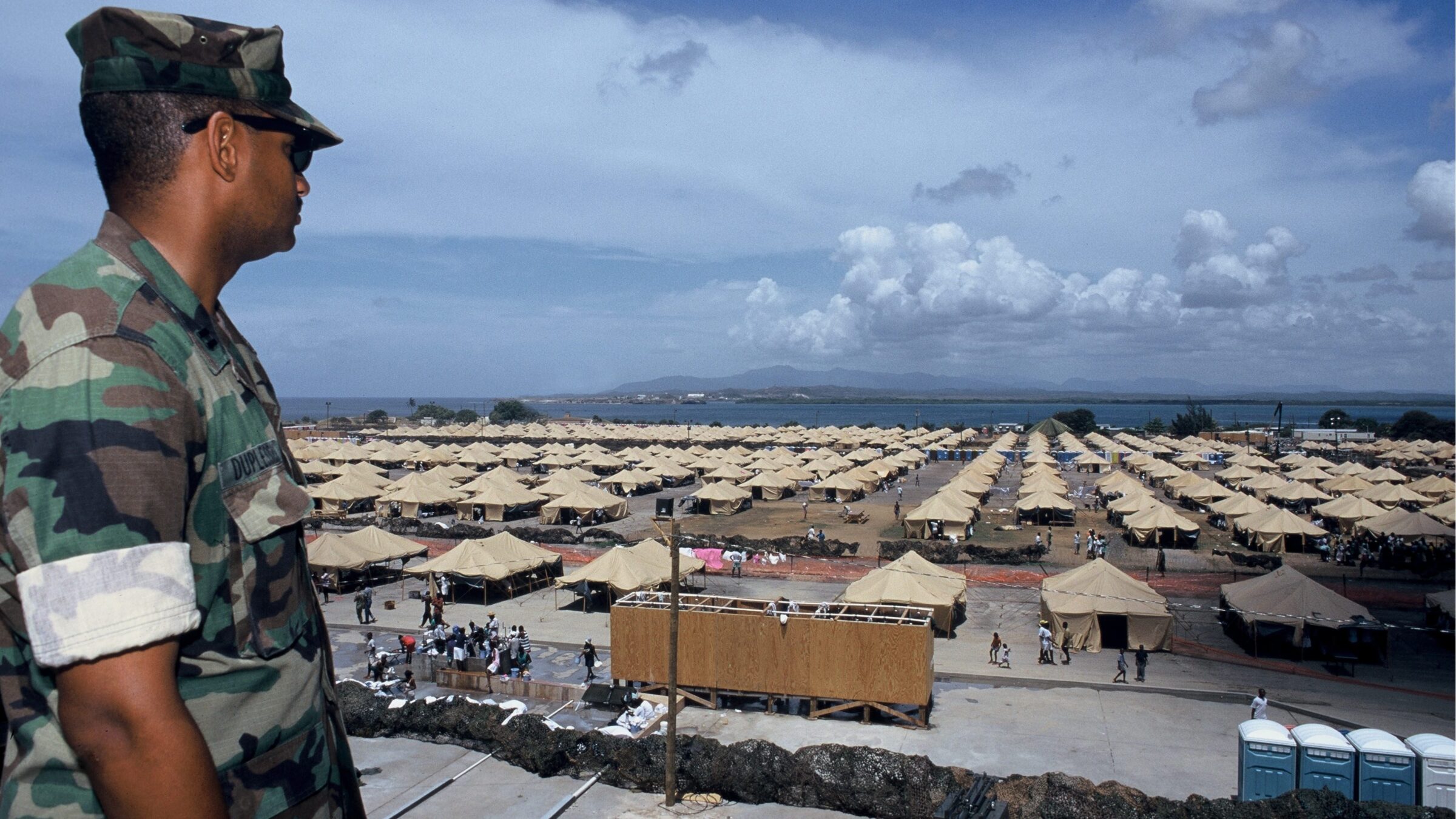
A refugee camp in Guantánamo Bay, August 1994 (Photo by Remi BENALI/Gamma-Rapho via Getty Images)
Guantánamo Bay has been synonymous with indefinite detention and torture for decades. The Migrant Operations Center is a small facility where the government warehouses asylum seekers and refugees encountered at sea, who are predominantly Cuban and Haitian migrants. The facility is separate from Guantánamo’s infamous military prison and is technically not a prison itself, but conditions are similarly abysmal, from the lack of medical care and clean drinking water to harsh and arbitrary disciplinary treatment. Because Guantánamo Bay is indelibly linked with government brutality during the War on Terror, lawyers who represent detainees caution that Trump’s order casts migrants and asylum seekers “as the new terrorist threat, deserving to be discarded in an island prison, removed from legal and social services and supports.”
The idea that constitutional protections do not apply at Guantánamo Bay is the reason the George W. Bush administration chose Guantánamo Bay as the site for its post-September 11 torture operations in the first place. A century-old treaty signed after the Spanish-American War grants the United States “complete jurisdiction and control” over 45 square miles of Cuban territory, with a lease extending in perpetuity unless both countries agree to cancel it or the U.S. abandons the base. Cuba is actively opposed to the U.S. continuing its dirty work in Cuban territory; the U.S. couldn’t care less.
In the decades since, federal courts have frequently affirmed the Bush White House’s suspicions, allowing Guantánamo to operate in constitutional no-man’s land. This judicial leeway permits the executive branch to commit and evade responsibility for grave injustices, and may yet allow the Trump administration to commit more atrocities in the future.
In 2005, for example, activists petitioned the courts to free 17 men imprisoned at Guantánamo Bay whom the government had acknowledged were improperly detained and eligible for release. The men were members of an ethnic group that faced discrimination in their home country of China, and after they fled to Pakistan, they were allegedly sold to the U.S. military for a bounty of $5,000 per person. Since returning them to China would put them in danger, the government just didn’t release them at all.
In 2008, a federal trial court in Washington, D.C. ordered the government to release the men into the continental United States. But the government appealed, and in 2009, the U.S. Court of Appeals for the D.C. Circuit reversed, reasoning that the elected branches have the “exclusive power” to decide “which aliens may, and which aliens may not, enter the United States, and on what terms.” The court also suggested that the Due Process Clause did not apply to the men since they had never been in the United States. The fact that the American government was illegally holding the men in an American prison was apparently irrelevant.
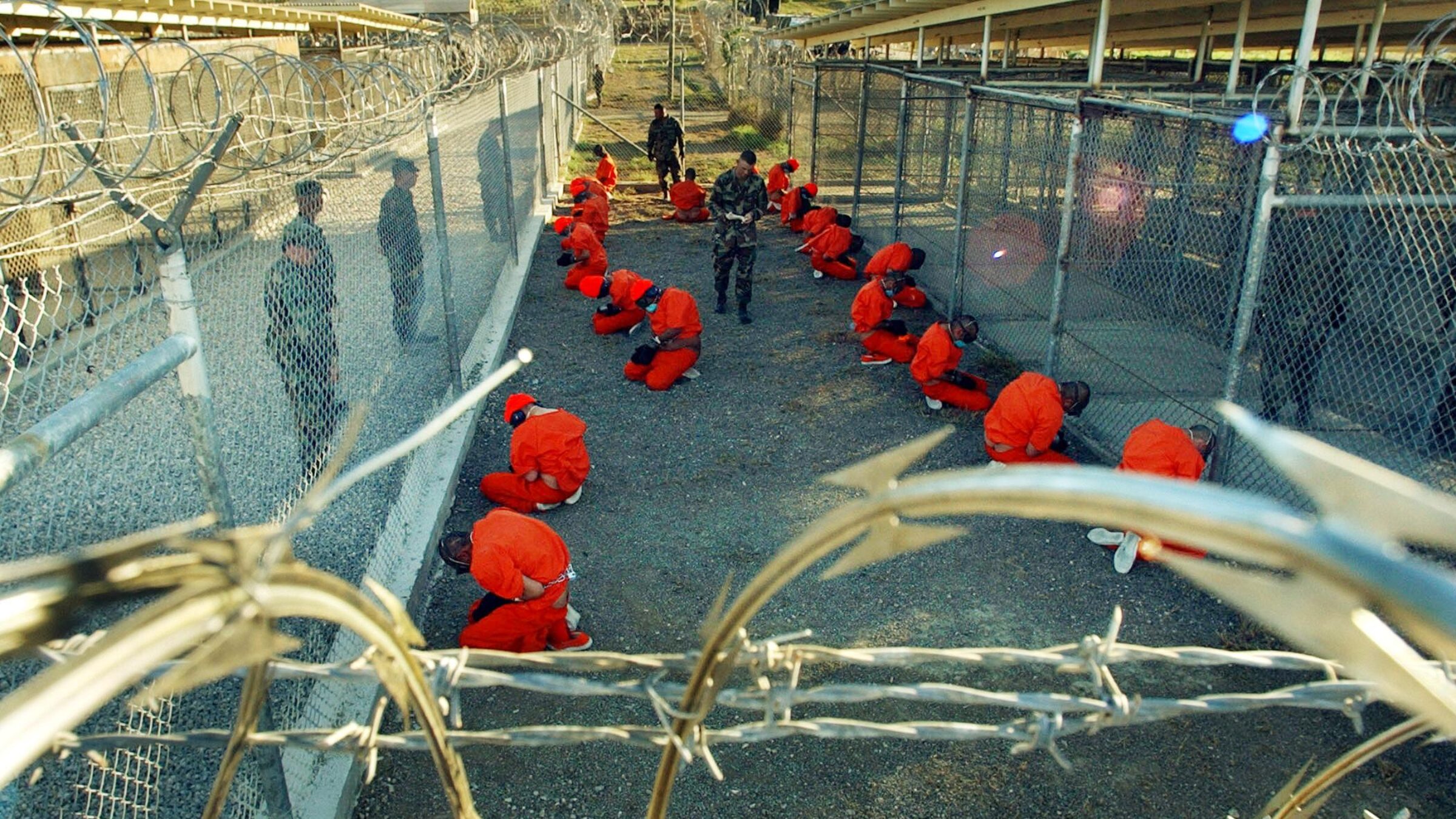
Suspected Al-Qaeda and Taliban detainees await processing at Guantánamo Bay, January 2002 (Photo by DOD / US NAVY/AFP via Getty Images)
In 2014, the D.C. Circuit rejected another attempt to get justice for six Guantánamo detainees. None of the men were members of terrorist organizations—a military tribunal had even ruled that a few of them were not enemy combatants—yet they were held without charges for years, subject to solitary confinement, sleep deprivation, forced medication, religious humiliation, and other forms of torture. They sued Guantánamo personnel over the treatment upon their release. But the government countered that the employees’ actions were “within the scope of their employment,” and the court agreed, calling the maintenance of security and safety at Guantánamo “a stern and difficult business.” The court also observed that “the treatment of the detainees in this case appears to be standard for all those similarly situated”—in other words, sure, they were abused, but that’s just how things go.
In 2019, the D.C. Circuit finally confronted the big question head-on: Does the Due Process Clause apply at Guantánamo Bay or not? Because if the Constitution guarantees that no person shall be deprived of their liberty without due process of law, surely it cannot abide 15 years of detention at a military prison without charges or a trial. But, the court said, even if some parts of the Due Process Clause apply, it’s an open question as to which and how much. The court concluded that the argument that the Due Process Clause’s requirements “apply wholesale, without any qualifications” to Guantánamo Bay detainees “sweeps too far,” and chided the petitioner for putting “all of his eggs in one constitutional basket.”
Notably, the court specified that its opinion did not address what protections would apply to “United States citizens or those with similar legal ties to the United States were they to be detained at Guantánamo Bay.” But the uncertainty here is kind of the point: The legal rights of any immigrants who might be detained at Guantánamo Bay are fragile at best. The Trump regime feels empowered to act as if the Constitution doesn’t exist at Guantánamo because other presidents acted like that, too—and the courts let them get away with it.
